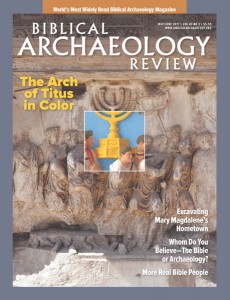First Person: Was the Dead Sea Scroll Community Celibate?

One of the many fascinating questions about the Dead Sea Scroll community living at Qumran is whether its members were celibate. Did they marry and have children or not?
According to the ancient Jewish historian Josephus and the Jewish philosopher Philo of Alexandria, the Essenes were indeed celibate.1 The Roman philosopher and naturalist Pliny the Elder agrees and seems to locate an Essene community at Qumran. The question, of course, is whether the Qumran community was in fact Essene.
The Essenes were a Jewish religious group, like the Pharisees and the Sadducees (and a number of other smaller ones). Whether the Qumran community was Essene is a much-debated question. According to a recent comprehensive review of Dead Sea Scroll research by leading Israeli Scroll scholar Devorah Dimant, the Qumran community probably was Essene.2 “In my judgment,” she writes, “the fundamental identity has stood the test of time.” But that doesn’t tell us whether the Qumran community, even if Essene, was celibate.
Tending in the opposite direction, two major Dead Sea Scrolls, the Damascus Document and the Rule of the Congregation (1QSa I), speak of women and children. The Damascus Document spells out special rules for a community consisting of families.
Already a library member? Log in here.
Institution user? Log in with your IP address.

